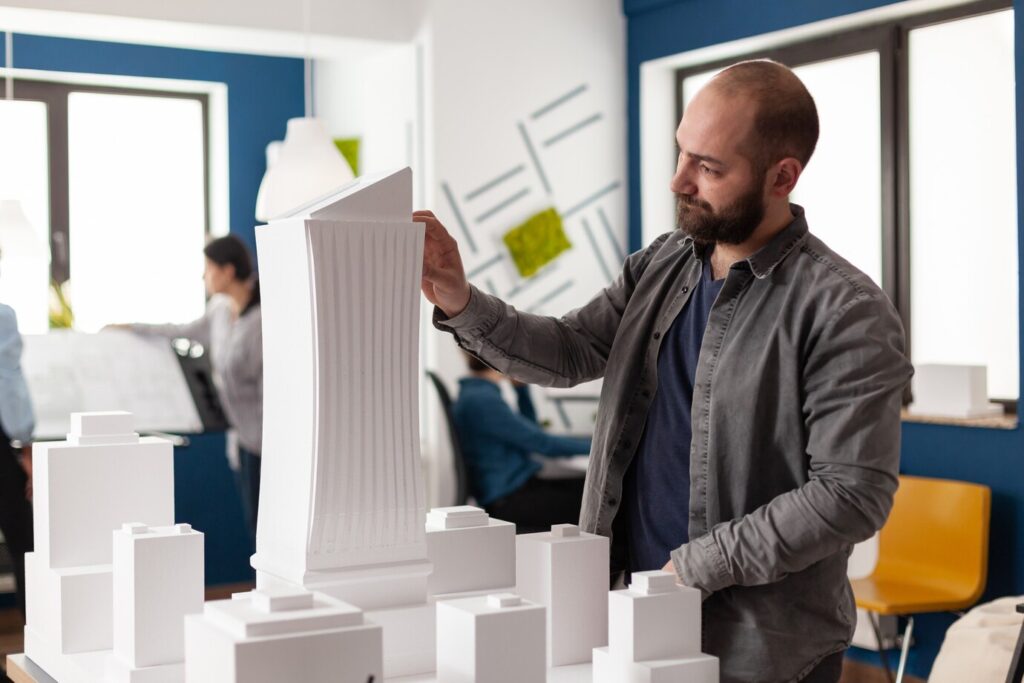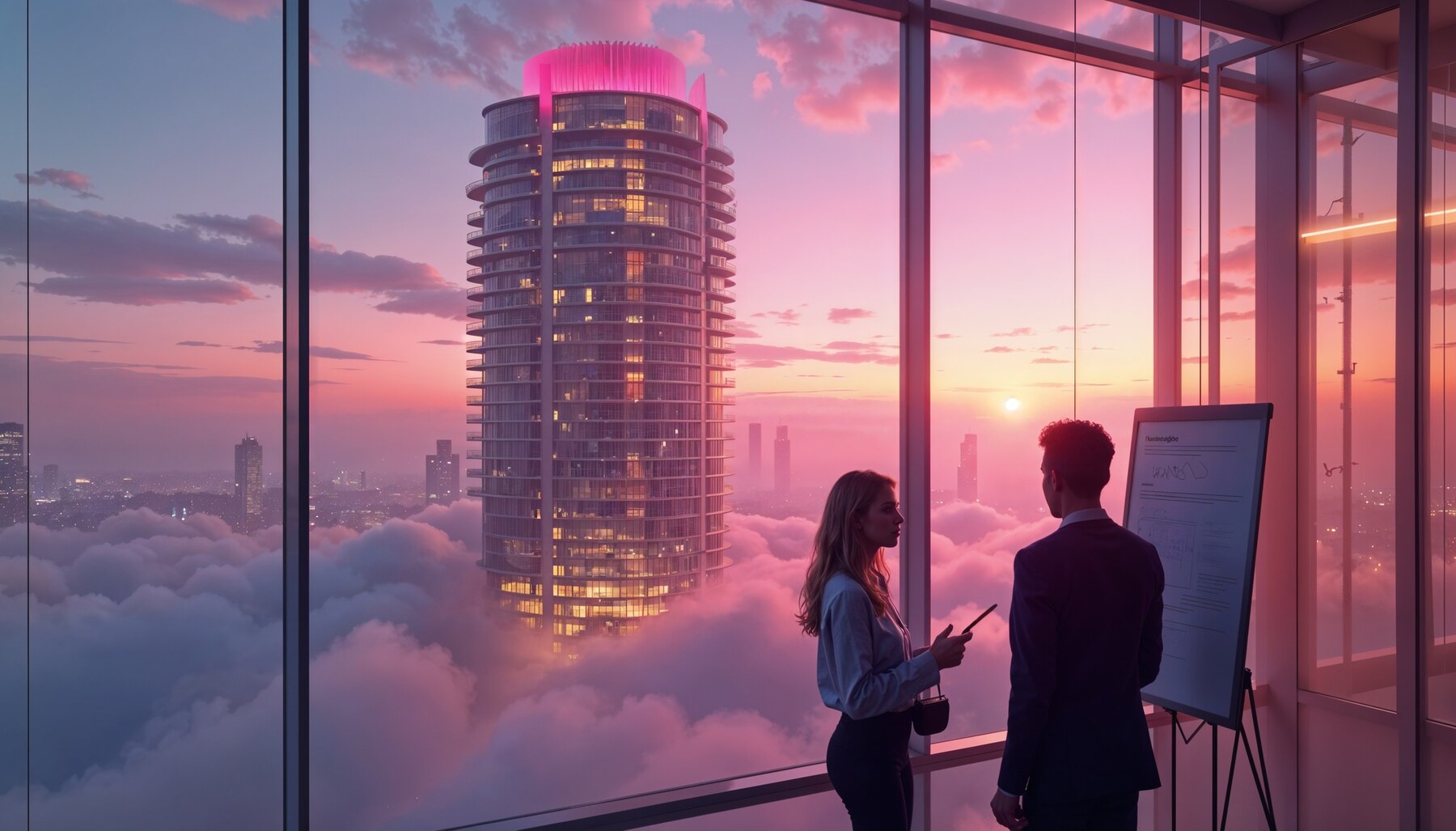Total Facade solutions have taken on a more significant role in the ever-changing field of design and construction, particularly in the planning and building of skyscrapers. Complete Facade Solutions (TFS) experts are leading this revolution, redefining metropolitan skylines with cutting-edge technologies, creative materials, and eco-friendly methods.
The Use of Facades in the Design of Skyscrapers
A skyscraper’s facade constitutes a building’s exterior, which interacts with the surroundings and is more than just an outside layer. Facades perform several essential tasks:
1. Aesthetic Appeal: A building’s visual identity is greatly influenced by its front. TFS professionals use imaginative layouts and supplies to provide breathtaking images that improve the urban environment.
2. Energy Efficiency: Environmentally friendly facades are more crucial than ever as worries about climate change grow. A building’s energy usage can be significantly decreased using creative glazing, insulation, and shading solutions.
3. Safety and Durability: Environmental stresses, including rainfall, winds, and temperature changes, must be withstood by facades. Total Facade Solutions Expert uses state-of-the-art materials that guarantee durability and safety, which minimizes the need for regular maintenance.
4. Sustainability: The drive for environmentally friendly architecture has resulted in using green technology in facade solutions, such as solar energy panels and green walls. TFS specialists integrate these components to produce structures with a small environmental impact.
Novel Materials and Technologies
Experts at Total Facade Solutions are always investigating novel materials and cutting-edge technologies that challenge conventional wisdom in skyscraper architecture. Among the most noteworthy inventions are the following:
1. Cutting-Edge Glass Systems
Electrochromic and photochromic glazing are innovative glass technologies that enable facades to adjust to changing lighting conditions. In addition to improving occupant comfort, these materials lessen the need for artificial illumination and HVAC systems, which increases energy efficiency.
2. Systems of Modular Facades
Construction procedures are streamlined by modular facades, enabling quicker assembly and lower labor expenses. TFS specialists use prefabricated panels that are simple to install to expedite construction projects and reduce disturbances to metropolitan areas.
3. Eco-Friendly Materials
Novel materials, including bio-based composites, self-healing concrete, and recycled aluminum, are becoming more popular in facade design. In line with international sustainability standards, TFS professionals are dedicated to implementing sustainable materials that minimize waste and their adverse environmental effects.
4. The Production of Digital Images
Robotic manufacturing processes and digital design tools are revolutionizing the design and construction of facades. TFS specialists can now precisely develop complex designs because this technology lowers errors and improves overall quality.

Encouraging Urban Architecture’s Sustainability
The demand for ecologically friendly skyscraper designs grows as cities and people rise. Leading this movement are TFS specialists, who use a range of tactics to guarantee that skyscrapers have an excellent environmental impact:
1. Vertical gardens and green roofs
Incorporating vegetation into skyscrapers via vertical gardens and green roofs enhances air quality, lessens the influence of urban heat islands, and improves visual appeal. Experts in TFS create facades that can accommodate these elements, promoting biodiversity in urban environments.
2. Facades that Generate Energy
Building-integrated photovoltaics (BIPV) is an innovative technology that enables facades to generate electricity while fulfilling their primary function. TFS professionals are at the forefront of utilizing solar cells seamlessly integrated into building facades, transforming skyscrapers into energy-producing structures.
3. Systems for managing water resources
Rainwater harvesting devices can be incorporated into facade designs to lessen the need for potable water. To conserve resources, TFS professionals are creating systems that let skyscrapers use rainwater collected for agriculture and other non-potable uses.
Increasing Adaptability to Climate Change
Because of the extraordinary problems posed by climate change, skyscrapers must be built to endure extreme weather. TFS professionals are meeting this requirement by:
1. Designs Resistant to Wind
Through sophisticated mathematical fluid dynamics (CFD) models, TFS professionals can create facades resistant to strong winds. In regions where storms are common, this ability is essential to maintaining the integrity and safety of skyscrapers.
2. Materials Resistant to Fire
The number of tall structures has increased, making fire safety a top priority. To successfully contain and manage fire threats, TFS professionals create facade systems that use fire-resistant materials and designs.
In summary
Experts at Total Facade Solutions are advancing development in skyscraper design by prioritizing sustainability, usability, and aesthetics. Adopting innovative supplies, innovations, and sustainable methods is changing metropolitan skylines and creating the foundation for an environmentally conscious and more resilient future. The knowledge and skills of TFS will be essential in developing iconic buildings that endure over time and leave as little of an ecological imprint as possible as communities continue to rise. The design of skyscrapers has a bright future thanks to cooperation, innovation, and an emphasis on sustainability. TFS professionals are spearheading this trend.






